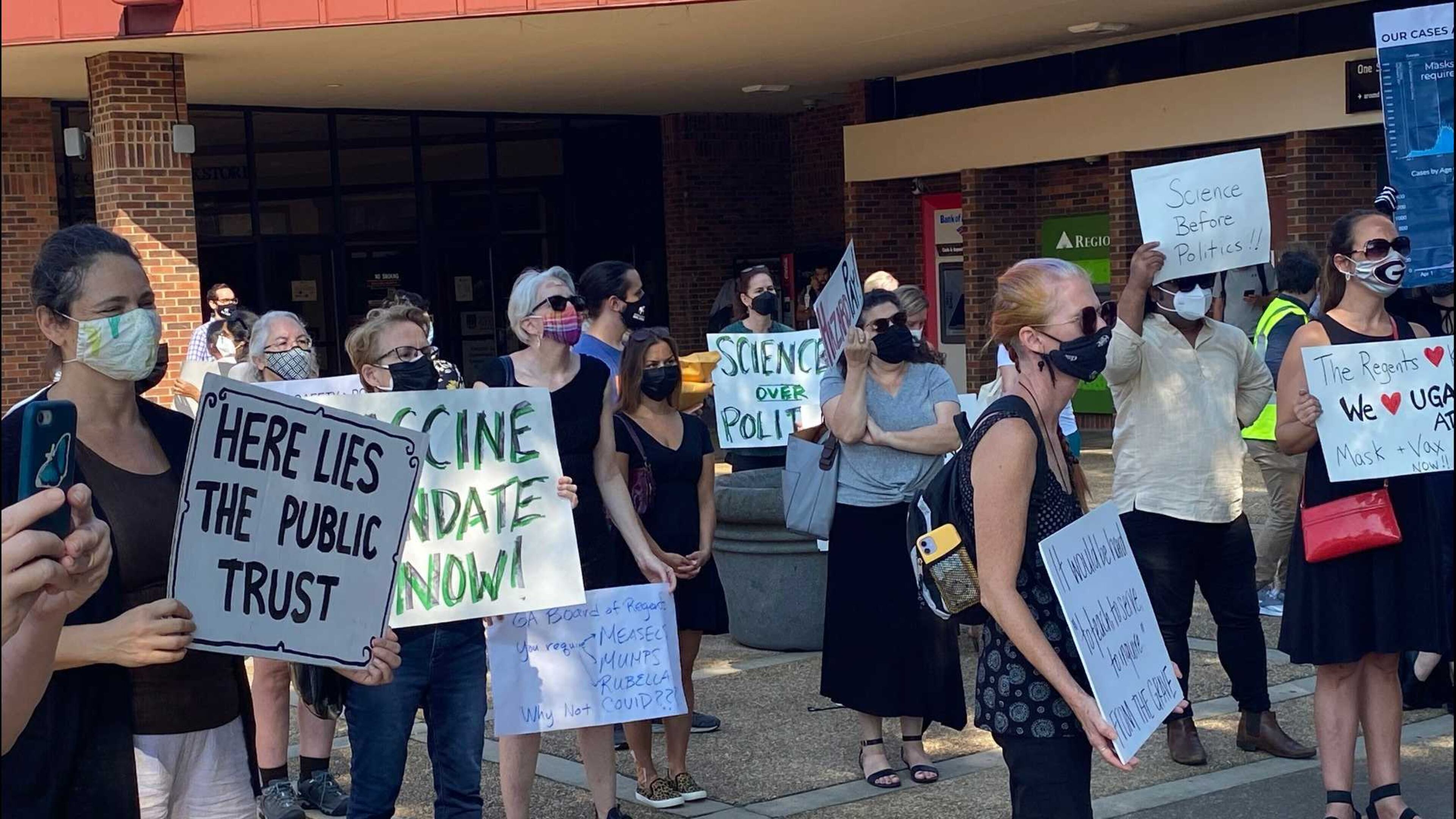Georgia faculty fight proposed changes to post-tenure review

The Georgia Board of Regents is scheduled to vote this week on some revisions to its post-tenure review process, where colleges and universities evaluate the work of their professors. Faculty members have criticized many proposed changes and suspect it’s being done to help schools fire more professors for political purposes. More than 1,100 people have signed a petition asking for several changes, or that a vote be delayed on the matter. One group of educators, the United Campus Workers of Georgia, is planning a rally Tuesday before the Regents meeting.
What is tenure?
Faculty members can go through a yearslong process to receive tenure, which gives them some protections from having their employment terminated. Currently, a professor with tenure can only be fired for a specific cause and through a detailed peer review process. Professors with tenure are often more vocal on campus issues, have higher salaries and can spend more time conducting research. The University System has a post-tenure process to review a professor’s work once he or she gets approved for tenure, generally once every five years. The review process was created in 1996, but system leaders say it’s remained largely unchanged since then.
What does the University System want to do?
System officials said at the September Board of Regents meeting they want to do a better job of measuring student success. Specifically, they want to evaluate how faculty members interact with students outside the classroom through mentoring or advising. Faculty members with two consecutive subpar annual reviews could lose their jobs if they don’t meet the corrective measures under a draft of the revisions presented to the Board of Regents at the September meeting.
What are the concerns about this?
Faculty members who object to the proposed changes say it could effectively end the due process rights for professors facing possible termination. University System officials have made a couple of changes in recent weeks to some of the revisions. Faculty want additional edits to other proposals that could require more frequent reviews of tenured professors, particularly if it’s determined they’re not meeting expectations in one of several categories that are part of their evaluation.
Why does this matter?
The proposed changes come as many faculty members have held rallies calling for mask mandates in all classrooms to limit the spread of COVID-19 on campus. The University System currently recommends, but doesn’t require, masks in all classes. Some faculty members worry the changes could be used to discipline professors who’ve been outspoken in favor of mandates or who’ve made students wear masks in their classes. System officials note a working group that includes a few professors was created last year to review potential changes, and they initially discussed the process at the August Regents meeting.
Several states have attempted to curtail tenure in recent years, and the percentage of faculty members with tenure has declined nationally, according to some research. About 27% of the University System’s 11,846 faculty members were classified last year as professors, slightly up from 24% in 2015, state data shows. Most are associate or assistant professors. Georgia’s numbers are similar to the rest of the nation.
System leaders say the proposed changes to better measure student success in the tenure review process are critical as they try to do a better job of getting students to complete their degrees. Some faculty, though, warn these changes will hurt future recruiting of high-quality professors into the Georgia system.



